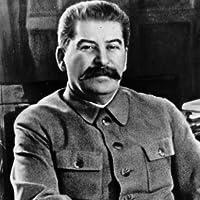
Joseph Stalin
À propos de l'auteur
Joseph Stalin was a prominent Soviet political leader who rose to power after the death of Vladimir Lenin. He served as the General Secretary of the Communist Party of the Soviet Union and eventually became the country's de facto leader. His policies, particularly during the industrialization and collectivization of agriculture, had a profound impact on the Soviet Union and influenced global communist movements. Stalin's tenure was marked by significant events such as World War II and the establishment of Eastern Bloc countries, which solidified his reputation as a key figure in 20th-century history.
However, Stalin's rule was also characterized by widespread repression, including purges, forced labor camps, and the Great Terror, which led to the deaths of millions. His legacy remains controversial, with some viewing him as a strong leader who modernized the Soviet Union, while others condemn his brutal tactics and authoritarian regime. The complexity of his character and the impact of his leadership continue to be subjects of extensive study and debate among historians and political analysts.